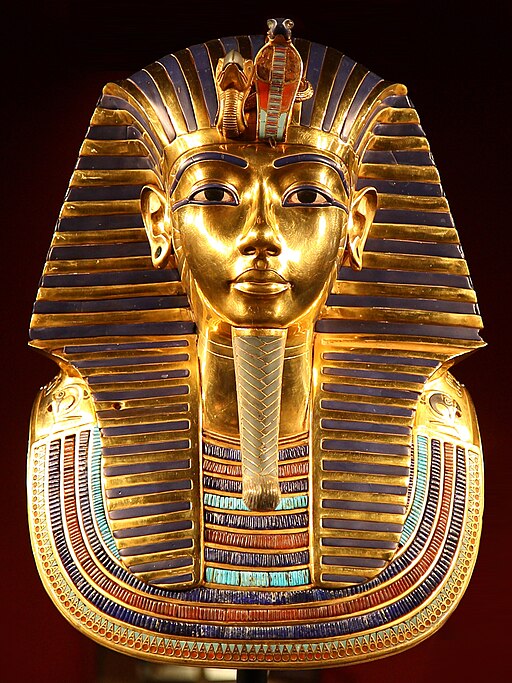
“The Houmuwu Ding” is a massive bronze sacrificial vessel from 3,000 years ago. The term “Ding” refers to a sacrificial vessel, and this one is a common type of Chinese ritual bronzes of the ancient Chinese Shang dynasty.
It is the most significant piece of bronze work found anywhere in the ancient world. This Ding’s name is based on the inscription in the bronze interior wall, which reads Hòumǔwù, meaning “Queen Mother Wu.”
Ancient Chinese Ding was made either as round vessels with three legs or rectangular with four legs. They were used for cooking, storage, and ritual offerings to the gods or ancestors.
The Ding and the privilege to perform the associated rituals became symbols of authority. The number of Dings a person could own depended on one’s rank in the Chinese nobility.
The “Houmuwu Ding” is of the rectangular type, with four legs, compared to the earlier Dings, this one is wider and thicker.
Each side has a blank space in the middle, surrounded by a band of decoration featuring animal faced creatures and dragons. The two handles are decorated with tigers facing each other, their jaws closing around a human head.
Ding Vessel
A Ding is an ancient Chinese cauldron standing upon legs with a lid and two facing handles. They were essential bronzes used in Chinese ritual.
They were used for cooking, storage, and ritual offerings to the gods or ancestors. The earliest recovered examples are ceramic Ding, but they are better known from the Bronze Age.
From about 1000 BC, the Ding and the privilege to perform the associated rituals became symbols of authority. The number of permitted Ding varied according to one’s rank in the Chinese nobility.
In Chinese history and culture, possession of one or more ancient Ding is often associated with power and dominion over the land.
Therefore, the Ding was commonly used as an inherent symbolism for power. In the early Bronze Age of China, the use of wine and food vessels served a religious purpose.
While Ding was the essential food vessels, wine vessels were the more prominent ritual bronzes of this time. A Ding was used to make ritual sacrifices to ancestors. If the ancestors were happy, the living would be blessed with good fortune.
Food vessels and the Ding, in particular, eventually replaced wine vessels in importance.
Bronze vessels underwent a change in decor as well as the types and variations of vessels found in tombs, and their function shifted from solely religious to a more secular one.
Instead of sacrificing food to appease ancestors, the Ding was used to show off the status of the deceased, A Ding became a symbol of status, to both the living and spirits.
Houmuwu Ding
- Title: Houmuwu Ding, also known as Simuwu Ding (wine vessel)
- Chinese: 后母戊鼎
- Year: 1300 – 1046 BC
- Period: Late Shang Dynasty
- Find site: Wuguan Village, Anyang, Henan, China
- Discovered: 1939
- Material: Bronze
- Dimensions: Height 133 cm, width 112 cm, depth 79.2 cm, weight 875 kg.
- Museum: The National Museum of China
The Houmuwu Ding
A Tour of the National Museum of China
- The Jade Burial Suit
- Portraits of Periodical Offering of Liang
- Houmuwu Ding
Explore Museums in China
- Beijing Museums
- The National Museum of China
- Shanghai Museums
- Shanghai Museum
- Shanghai Science and Technology Museum
- Shanghai Natural History Museum
- Aurora Art Museum
- Nanjing Museums
- Nanjing Museum
Da Ke Ding
Ancient Chinese Proverbs
~~~
“The swiftest horse can’t overtake a word once spoken.”
~~~
“In a flood of words, surely some mistakes.”
~~~
“A careful foot can step anywhere.”
~~~
“A bad word whispered echoes a hundred miles.”
~~~
“A sharp tongue or pen can kill without a knife.”
~~~
“If Heaven made someone, the earth can find some use for them.”
~~~
“The judge with seven reasons states only one in court.”
~~~
“Forget the favors given; remember those received.”
~~~
“Stare at the profit and step in the pitfall.”
~~~
“In bed, be wife and husband, in the hall each other’s honored guest.”
~~~
“To stop drinking, study a drunkard while you are sober.”
~~~
“With virtue, you can’t be completely poor; without it, you can’t be truly rich.”
~~~
“If you want no one to know, don’t do it.”
~~~
“Stout men, not stout walls, make the stout city.”
~~~
“Without sorrow,s no one becomes a saint.”
~~~
“If you want your dinner, don’t insult the cook.”
~~~
“Before telling secrets on the road, look in the bushes.”
~~~
“Determination tempers the sword of your character.”
~~~
“If the first words fail, ten thousand will then not avail.”
~~~
How ancient Chinese bronzes were created
~~~
“It is easy to find a thousand soldiers, but hard to find a good general.”
– Chinese Proverb
~~~
Photo Credit: By Mlogic (Own work) [CC BY-SA 3.0 (creativecommons.org/licenses/by-sa/3.0) or GFDL (gnu.org/copyleft/fdl.html)], via Wikimedia Commons
Popular this Week








 Sponsor your Favorite Page
Sponsor your Favorite Page SEARCH Search for: Search Follow UsJoin – The JOM Membership Program
Sponsor a Masterpiece with YOUR NAME CHOICE for $5
Share this:
- Tweet
